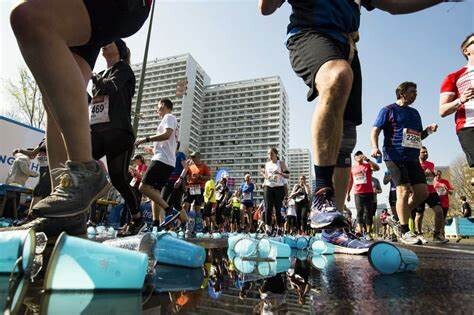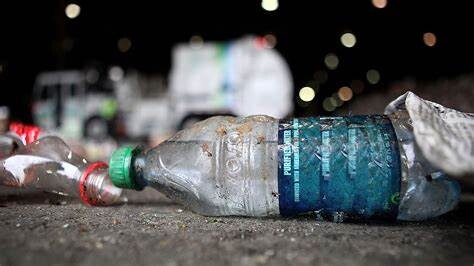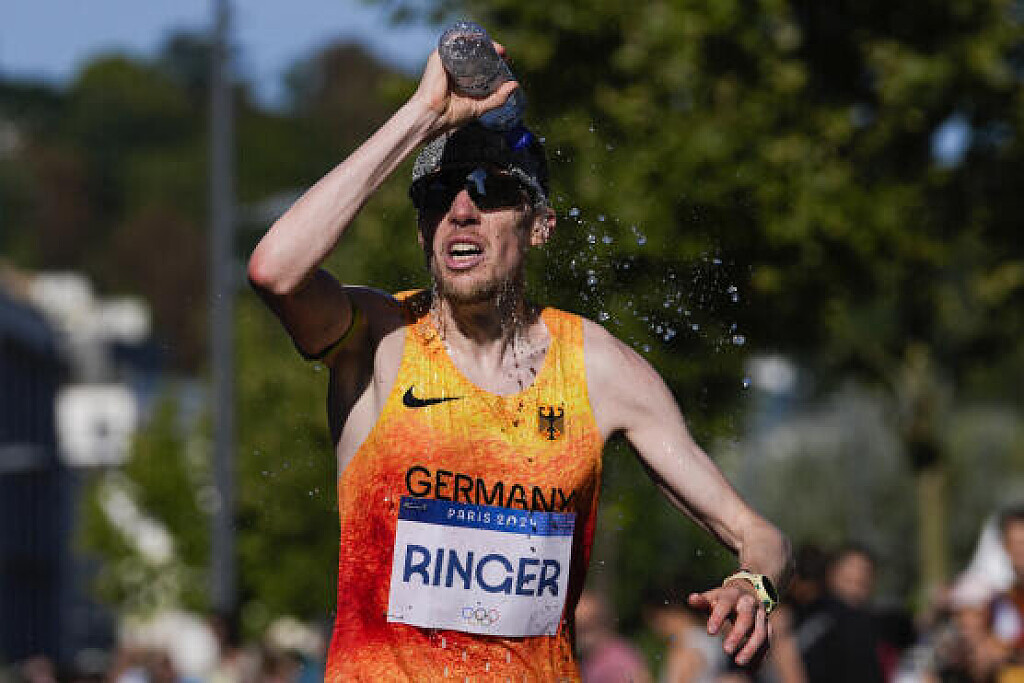Running News Daily
Running News Daily is edited by Bob Anderson. Send your news items to bob@mybestruns.com Advertising opportunities available. Train the Kenyan Way at KATA Kenya and Portugal owned and operated by Bob Anderson. Be sure to catch our movie A Long Run the movie KATA Running Camps and KATA Potato Farms - 31 now open in Kenya! https://kata.ke/
Index to Daily Posts · Sign Up For Updates · Run The World Feed
Paris bans plastic bottles from races
On Monday, Paris City Hall announced a ban on single-use plastic in all its races, including the Paris 20 km in mid-October and the Paris Marathon.
Didn't get to crisscross the Paris asphalt during the Paris 2024 Olympics' Marathon pour Tous ("Marathon for Everyone")? You'll have a chance to make up for it on October 13, with one of the many races taking place in the capital, the 46th annual Paris 20-kilometer race.

But don't forget your water bottle. At the press conference presenting the event on Monday, September 23, Pierre Rabadan, deputy mayor of Paris responsible for sports, confirmed that the ban on single-use plastic bottles would come into force.
"In Paris, you won't be able to organize a race if you use plastic bottles, it's as simple as that," assured the 44-year-old former rugby player, in remarks reported by sports paper L'Equipe. "It was one of the objectives of the Olympic legacy. We have to reduce the use of single-use plastic in our daily lives, and sport has to get on board. It's an evolution, and even a revolution for the organizers."

No fewer than 13 races will be held in Paris between now and December 31, for a total of some 50 events a year – including the Paris Marathon and Half Marathon, which attract around 50,000 runners. In these races, particularly the longer ones, over a million bottles are used each year to rehydrate runners – "who generally only take two or three sips before throwing it away.
I know because it's happened to me too when I used to take part in races," insisted Rabadan. So that's the end of the individual bottles cans, or cartons, which are to be replaced instead by reusable water bottles and reusable cups. The City of Paris has invested in a stock of 100,000 of these cups, which it can lend to race organizers.
Target 'zero single-use plastic' for the Olympics
During the Olympic marathon, however, competitors were granted a dispensation to continue using bottles – to avoid the risk of contamination, or even doping, according to the organizing committee – and elite athletes could continue to benefit from such policies. "It's all about the masses and all the other participants who aren't gambling their season on a race," said Paris's deputy mayor for sports.
Drawing inspiration from initiatives in Munich, Amsterdam and San Francisco, but above all from the refill London campaign (2018) across the Channel and the Brussels 20 km, the city has been working since 2019 to achieve the goal of "zero single-use plastic," for the hosting of the Olympic and Paralympic Games, which have claimed to be the greenest in history. This is a legacy that must live on.
Nevertheless, through the International Olympic Committee's (IOC) game of "world" sponsors, the American giant Coca-Cola – the world's leading "plastic polluter" according to the NGO Break Free from Plastic's 2023 ranking – was entrusted with the exclusive distribution of drinks at the 2024 Olympics. Numerous associations, including France Nature Environnement, Zero Waste France and No Plastic in My Sea, awarded the IOC partner the greenwashing medal.
The soda producer promoted its fountains, returnable cups and glass bottles. But over 40% of the total drinks distributed were poured into an eco-cup from... a plastic bottle. The kind of bottle that should no longer be seen at Parisian races.
by Sports department
Login to leave a comment
Les 20K de Paris
The 20 Kilometers de Paris (Paris 20 km) is an annual road running competition over 20 kilometers which takes place on the streets of Paris, France in October. First held in 1979, the race attracts top level international competitors and holds IAAF Bronze Label Road Race status. The competition was the idea of Michel Jazy, a French runner who was...
more...




